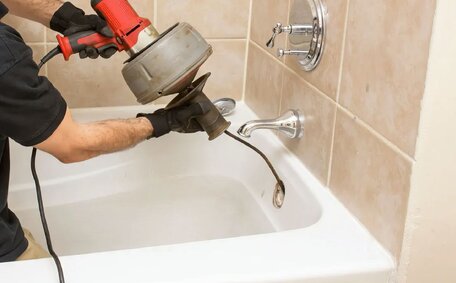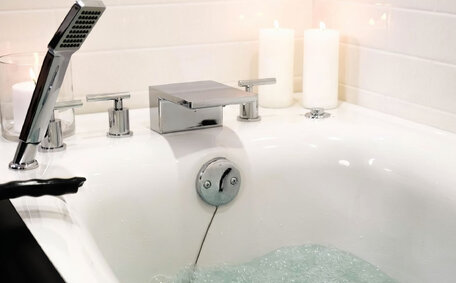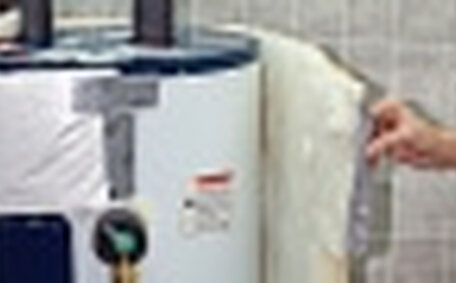Rising energy bills compel Marrickville homeowners to make a crucial choice when upgrading old appliances: gas or electric? When making the switch to more energy-efficient appliances, it pays to understand how gas stacks up against electricity over the appliance’s lifetime.
This comparison focuses on key household appliances such as stovetops, ovens, hot water systems, and heating units.
While gas appliances may offer lower operating costs, modern electric options excel in efficiency, potentially reducing long-term energy expenses. We’ll delve into the initial costs, recurrent expenditures, features, and ecological effects of both power sources.
We aim to provide Sydney’s homeowners with essential knowledge to evaluate gas and electric options, like gas central heating or electric appliances. Understanding the comparison of energy plans encompassing gas and electric is crucial, whether to decrease gas consumption or transition to eco-friendly alternatives.
Considering costs, efficiency, and lifestyle requirements, we’ll shed light on whether gas or electricity align better with different households’ financial objectives over time.
With escalating energy bills, Marrickville homeowners face a critical decision when replacing outdated appliances: should they choose gas or electric? It’s vital to comprehend the long-term financial implications of each option.
While gas appliances may offer lower operating costs, modern electric options excel in efficiency, potentially reduffer widely. Typically, electric options such as heat pumps and induction cooktops carry a higher initial price than gas appliances. For instance, a high-efficiency heat pump water heater may range from $2,000 to $4,000, while a conventional gas water heater is priced between $1,000 and $1,500.
- Stovetop:
- Induction stove models and gas oven units range from $1000 - $1500
- Gas electric ovens - $500 - $1200
- Oven:
- Electric - $500 - $1500
- Gas - $500 - $1000
- Space heater:
- Electric convection heaters, which can also serve as a viable heat vs gas option, range from $200 - $500
- Gas space heater - $300 - $600
- Water heating:
- Electric heat pump - $2000 - $4000
- Gas storage tank - $1000 - $1500
While electric appliances might seem more expensive at purchase, their outstanding energy efficiency can result in substantial savings over time. Let’s investigate the running costs to fully assess the long-term financial impact.
Upfront costs for gas or electric appliances can differ widely.
Safe installation assurance comes at an hourly rate of $80 - $150. The gas fitter will test for leaks to make sure your installation is secure.
Switching to or installing gas appliances requires a proper natural gas connection, particularly for water heaters. Conversely, fitting electric appliances, such as 220-240V ovens or water systems, typically calls for a licensed electrician, costing approximately $100 per hour.
If you’re switching from gas to electric, no new utility connection fee would apply.
Although gas appliances may not require structural upgrades, their longer-term operational costs can be higher. Let’s further scrutinise these ongoing expenses to determine how gas and electric options compare over time.
Operating Costs: Cooking and Heating with Gas vs Electric
Cooking:
For stovetop cooking, gas ranges generally offer lower hourly operating costs compared to electric induction models. Despite the influence of variable gas prices, gas stoves and ovens can be less expensive to run than electric alternatives. Nevertheless, the superior energy efficiency of modern induction cooktops and electric ovens might decrease the total energy costs in the long run.
Space Heating:
For home heating, gas furnaces in gas central heating systems are often more affordable per kWh compared to their electric counterparts. So even though Assessments of gas economics typically reveal more wallet-friendly per unit cost figures, it’s crucial to consider how much energy your heating system, like heat pumps, use for heating.
Choosing heat pumps or modern storage heaters could entail lower overall expenses compared to conventional heating. The cost per kWh for gas heating averages 2 to 4 cents, whereas electric heat pumps, known for their efficiency, typically cost just 1 to 2 cents per kWh to run.
Water Heating:
Electric-powered heat pump systems, efficient in heating hot water, have become cost-effective, competing with traditional gas boilers and using roughly half as much energy. Whereas traditional gas boilers and heating systems typically cost around 2 to 4 cents per kWh, electric storage heat pumps are more economical, only about 1 to 2 cents per kWh for operation.
The high efficiency of these systems translates to lower energy consumption and reduced bills over time, especially when compared to gas heating alternatives.
When analysing the operating costs of gas vs electric appliances, the efficiency differences are key. Modern electric systems like heat pumps often cost less to operate, helping manage your energy expenses and offsetting their higher purchase price over time.
Cooking:
Comparing Energy Efficiency of Gas and Electric Appliances
When evaluating energy-to-heat conversion, electric appliances generally outperform gas models in terms of efficiency.
In gas heating systems, a considerable amount of energy dissipates during combustion—only about 80-90% of the energy generates usable heat, with the remainder escaping through the flue.
Conversely, electric systems such as heat pumps utilise heat exchange technology to achieve 300-500% efficiency, outperforming traditional models in energy utilisation and cost-effectiveness. The reduction in energy waste leads to diminished operating expenses.
Energy efficiency ratings help compare appliances. Gas hot water systems sit around 2-4 stars while the best electric heat pump systems achieve 5-6 stars. The higher the star rating, the more efficient the system operates.
Although gas appliances may be less costly initially, electric models, such as heat pumps and induction cooktops, lead to long-term savings via lower energy use and utility costs. Their advancements mean you gain more usable energy per watt over 10 years.
Adopting energy efficient electric appliances is a strategic move to economise expenses to heat your living spaces in the long term. Their higher star ratings and advanced heat exchange technology offer greater energy savings over time compared to most gas appliance options, which is why it’s crucial to compare energy plans carefully.
Maintenance Costs and Safety Considerations
When weighing up gas versus electric appliances, it’s important to factor in ongoing maintenance costs and safety precautions.
Gas appliances typically have higher annual maintenance costs. Yearly checks on gas heaters, stoves, and hot water systems by licenced technicians ensure safe operation and no gas leaks. These safety checks, at $150-250 per appliance, add to the costs to consider per year.
In comparison, electric appliances tend to have lower maintenance costs and generally consume less energy overall. Heat pumps and electric hot water systems need little more than cleaning filters or anodes every 2-3 years. Induction cooktops don’t have open flames, reducing safety hazards in the kitchen.
Nonetheless, improperly maintained gas appliances can present significant hazards. Gas leaks and faulty appliances can lead to carbon monoxide poisoning or fires. Always install gas appliances per safety regulations and have yearly check-ups.
While electric models have higher upfront costs, their minimal maintenance and reduced safety risks can pay off over time through lower ownership costs. Improved efficiency also leads to savings on energy bills in the long run.
Comprehending the maintenance needs and safety issues is essential for a complete assessment when comparing the energy efficiency of gas versus electric appliances.
Environmental Impacts of Gas vs Electric Appliances
Regarding environmental impact, gas appliances contribute to a larger carbon footprint than their efficient electric counterparts. The burning of natural gas releases carbon dioxide and methane, which are potent greenhouse gases that contribute to climate change.
According to Australia’s National Greenhouse Gas Inventory, natural gas accounted for around 27% of household greenhouse emissions in 2019. Gas-fired appliances like stoves, hot water systems and space heaters all produce these harmful emissions that heat the planet.
Transitioning toward electric appliances, charged by renewable energies, can substantially lessen the impact on the environment your house’s carbon footprint imparts. Contemporary electric appliances, including heat pump water heaters and air conditioning systems acting as alternatives to classic gas boilers, induction cooktops, harness renewable energy sources like solar PV, often maximising their potential during day hours. This means zero direct emissions from the home.
For those seeking to reduce their environmental footprint, switching to efficient electric appliances is an effective strategy for diminishing household carbon emissions. Although they come with greater initial costs, electric appliances capitalize on renewable energy, granting the dual benefits of greener living and decreased operational costs—a wise investment for the future.
Marrickville households getting off gas, aiming to reduce energy usage, save on bills and live more sustainably, may find all-electric homes powered by renewable energy the optimal solution. Opting for electric alternatives can propel homeowners towards a net zero environmental footprint.
Government Incentives for Switching to Electric Appliances
The Australian government offers several incentives for Marrickville households looking to transition from gas to electric appliances.
Federal Government Rebates
The federal government provides rebates through the Home Heating and Cooling Upgrade programme for installing efficient electric heat pumps and other electric appliances:
- Up to $1000 rebate for switching gas heaters out for air source heat pumps
- Up to $600 rebate for switching from gas to electric hot water systems
NSW Government Incentives
The NSW government offers the following incentives specifically for Sydney residents:
- Up to $840 rebate for installing a heat pump hot water system
- $500 rebate for an energy efficient induction cooktop
- Low-interest loans up to $14,000 for switching from gas to electric appliances
Marrickville Council Rebates
The Marrickville Council also provides:
- A $500 rebate for switching from natural gas to efficient electric appliances
- Receive up to $200 reimbursement for decommissioning dated appliances like gas dryers
To access these savings and rebates, which governments should inform you about, contact our team at Marrickville Plumbing. We can guide you into your eligibility and assist with the application process.
With the available incentives, now may be the ideal time for Marrickville households to get off gas and use electric units to heat water, reduce their energy bills and environmental footprint.
Making the Switch from Gas: Is it Worth it?
When deciding to replace gas with electric appliances, consider that sustained cost savings and enhanced efficiency often make electric alternatives a preferable choice for numerous Marrickville residences.
Despite the lower initial cost of gas appliances, contemporary electric models such as heat pumps, induction cooktops, and convection ovens are more energy-efficient. Advanced technology delivers a higher yield of usable energy per watt, equating to reduced running costs over the long haul.
Opting for efficient devices can enable an average home to save up to $378 annually on cooking, hot water, and ambient warmth expenses. When you factor in savings on hot water systems, the overall utility bill reductions are even greater. Solar hot water systems and heat pump water heaters use around half as much energy as gas storage units.
Electric systems also offer environmental advantages by producing fewer carbon emissions. Shifting to an optimal mix of energy sources, including solar panels, enables Marrickville homes to lessen their carbon footprint and ecological impact.
The prospect of up to $840 in rebates and enduring savings on electric heating bills makes the shift to electric appliances an increasingly prudent option, even for those with no solar enhancements. Contact our team at Marrickville Plumbing to find out more about your options. With over 25 years of experience, we can advise whether gas or electric solutions suit your home and budget.
For a sustainable, more energy efficient home, harnessing electric appliances in conjunction with solar energy solutions often yields the greatest return on your investment. Permit us to steer your transition towards cost-effective and clean reverse cycle systems and other electric appliances.






